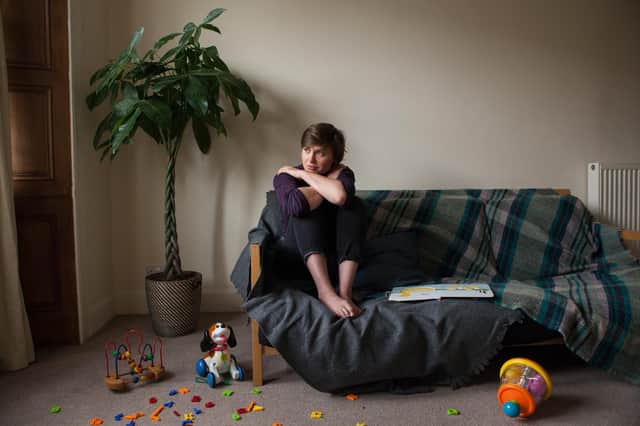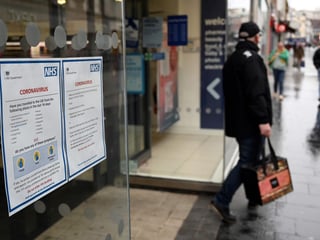Coronavirus: Warning that women and children in abusive households at increased risk


Dr Marsha Scott, Chief Executive of Scottish Women's Aid, said the pandemic will also affected women disproportionately as they are more likely to be in precarious employment, to head single-parent households, depend on social security, and do the majority of unpaid caring work.
Women and children who live with an abuser, she said, will also be at increased risk as the population self-isolates and schools close.
Advertisement
Hide AdAdvertisement
Hide AdHer warning comes as the United Nations has also raised concerns about the impact of a coronavirus lockdown on victims of domestic violence.
Anita Bhatia, the Deputy Executive Director of the United Nations Women has said that “the very technique we are using to protect people from the virus can perversely impact victims of domestic violence.”
She added that “while we absolutely support the need to follow these measures of social distancing and isolation, we also recognize that it provides an opportunity for abusers to unleash more violence.
“We are in unchartered territories in terms of what survivors are going to experience.”
Already there have been reports of increased incidents of domestic abuse following the lockdown after the outbreak of the virus in China. Women who needed to flee their homes were not able to access permits to leave the city and escape their abusers.
Today Dr Scott said that women at home with an abuser will undoubtedly “feel increased anxiety around the prospect of self-isolation and social distancing, or even quarantine.
“Or, for the many survivors who do not live with their abusers, they may feel an increased level of fear at the prospect of their abuser knowing that they are at home, and the possibility for further surveillance that this creates.
"We also have concerns about the impact of the coronavirus on children and young people experiencing domestic abuse. We know from the children and young people using our services that school and nursery can often feel like the safest places to be when they and their mothers are experiencing domestic abuse.
Advertisement
Hide AdAdvertisement
Hide Ad“The imminent closure of these spaces, as well as other community spaces where children and young people get to enjoy their freedom, will have particular impact on the safety and wellbeing of those experiencing domestic abuse.”
Stressing that Scotland’s Domestic Abuse and Forced Marriage Helpline will remain available for 24 hours a day, every day, she said that they were expecting to see a rise in demand for support – and that the virus will mean how that support is offfered will also change.
Women could also become scared of going to hospital if they are injured for fear of becoming infected, and victims may also feel they cannot seek refuge at elderly parents homes. Losing any income could also hit women hard if they are trying to save money to leave home.
Dr Scott added “Police, the health service and local authorities will be under increasing pressure. At Scottish Women’s Aid, we are supporting our local groups to manage risk and to continue to provide their services to the best of their ability, keeping the safety of their staff in mind.
"For some groups, this pandemic means moving to new ways of working – including providing their service over the phone, online, by text or by email. Women seeking support during this time should still reach out to their local Women’s Aid group. Our staff can still help with the same safety planning, emotional support and referrals for other services that they would do in person, and some groups are still running in-person appointments.
“Individual groups’ responses are under constant review, and each group will make decisions about the provision of their service based on information as it becomes available.”
The Scottish Government has announced a package of £350m for councils and third sector organisations – like Women’s Aid groups – to ensure they can continue to support those in need during the coronavirus outbreak.
Dr Scott said there would be real challenges for services working to support children and women in abusive environments.
Advertisement
Hide AdAdvertisement
Hide AdShe added: “Women also make up a significant percentage of key frontline workers in this crisis – healthcare, social care, cleaning, teaching, retail and more. In terms of protecting and supporting the public, the women staffing Women’s Aid services are also key here and national and local authorities must engage in contingency planning for these services too.
"The Women’s Aid movement in Scotland is built on the shoulders of women who, when faced with intense challenges, found a way. In the face of great uncertainty now, we will do the same, and our commitment to the protection of women, children and young people remains steadfast."
Scotland’s Domestic Abuse and Forced Marriage Helpline is available on 0800 027 1234, email [email protected] or web chat at www.sdafmh.org.uk.
Find your nearest Women’s Aid group here: https://womensaid.scot/find-nearest-wa-group/
